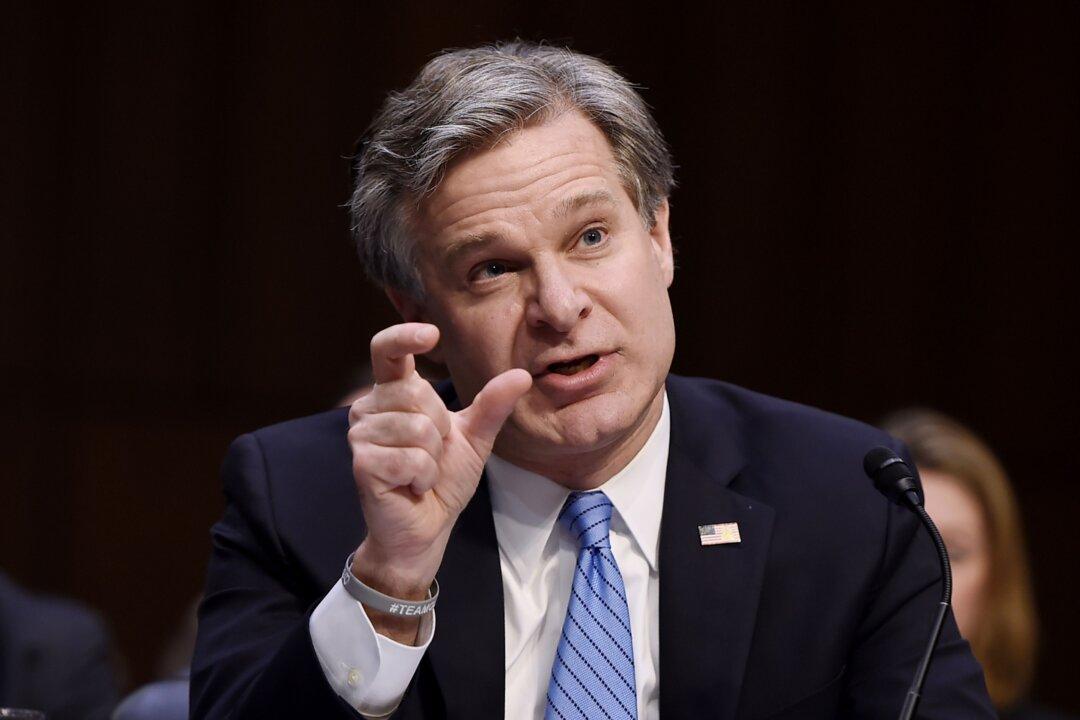FBI Director Christopher Wray told a House panel on national security threats that no single organization or ideological affiliation represents the biggest risk, but instead, individuals who self-radicalize online and carry out attacks pose the most serious threat to the homeland.
At the Sept. 17 hearing before the House Homeland Security Committee, Wray was asked by Rep. Bennie Thompson (D-Miss.) whether the greatest domestic threat to homeland security was posed by right-wing or left-wing extremism.





